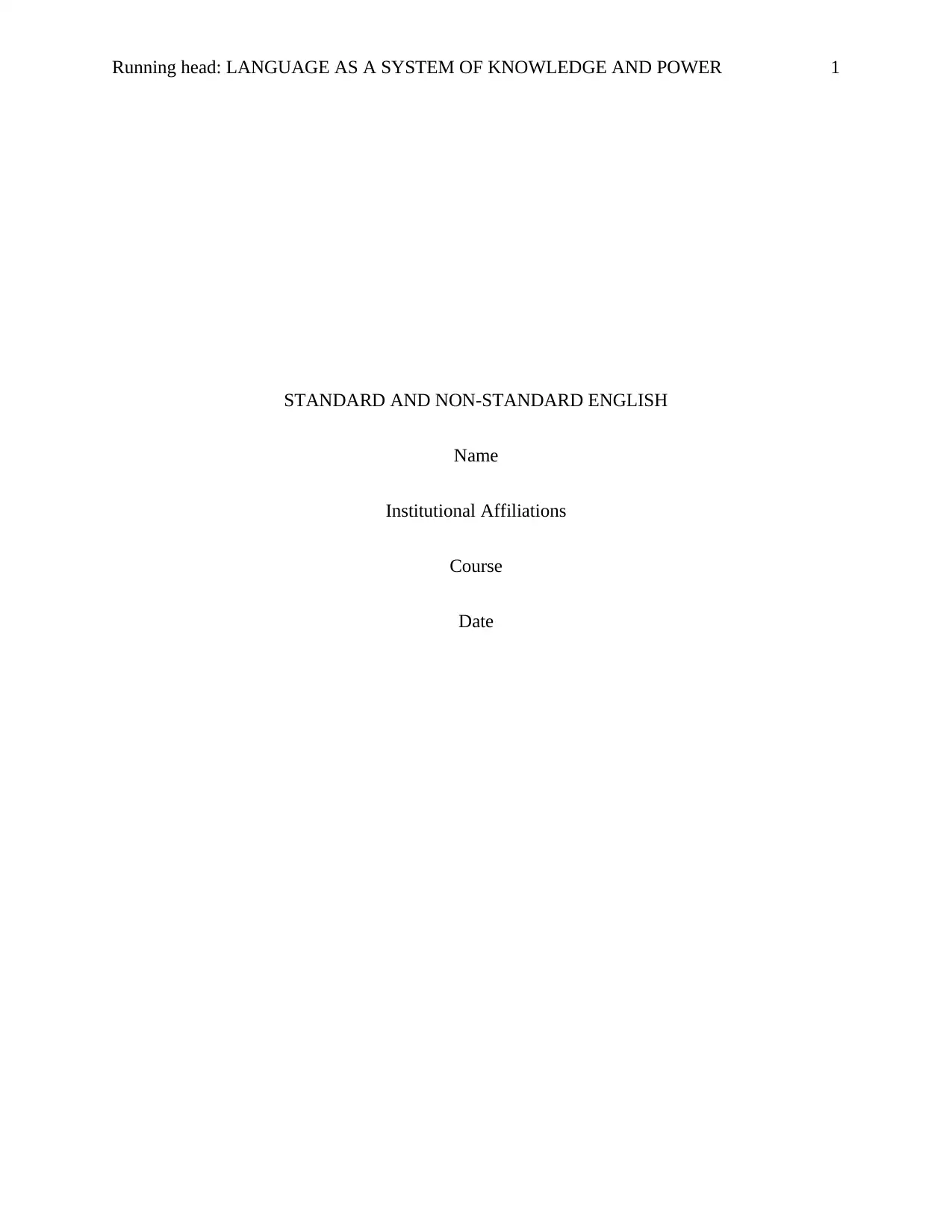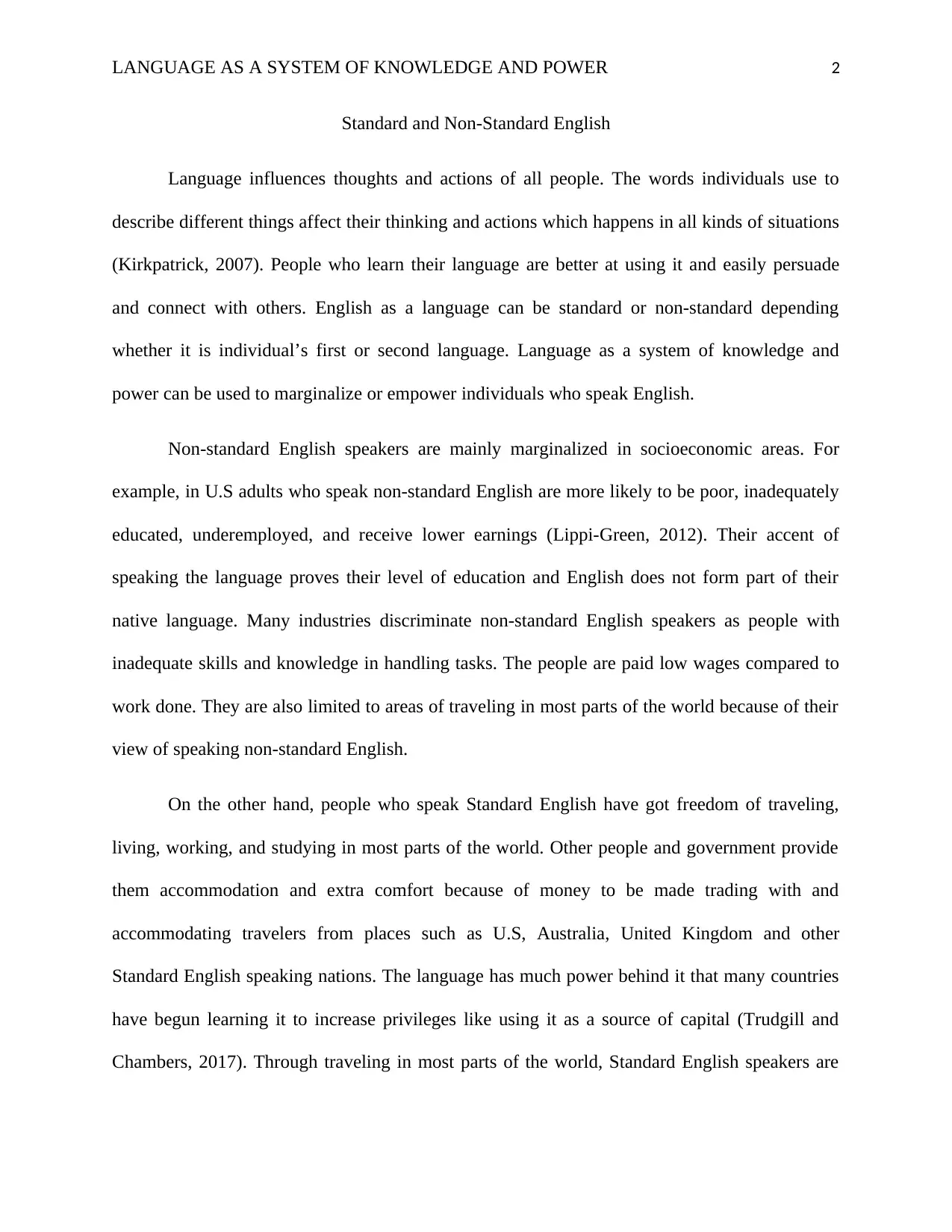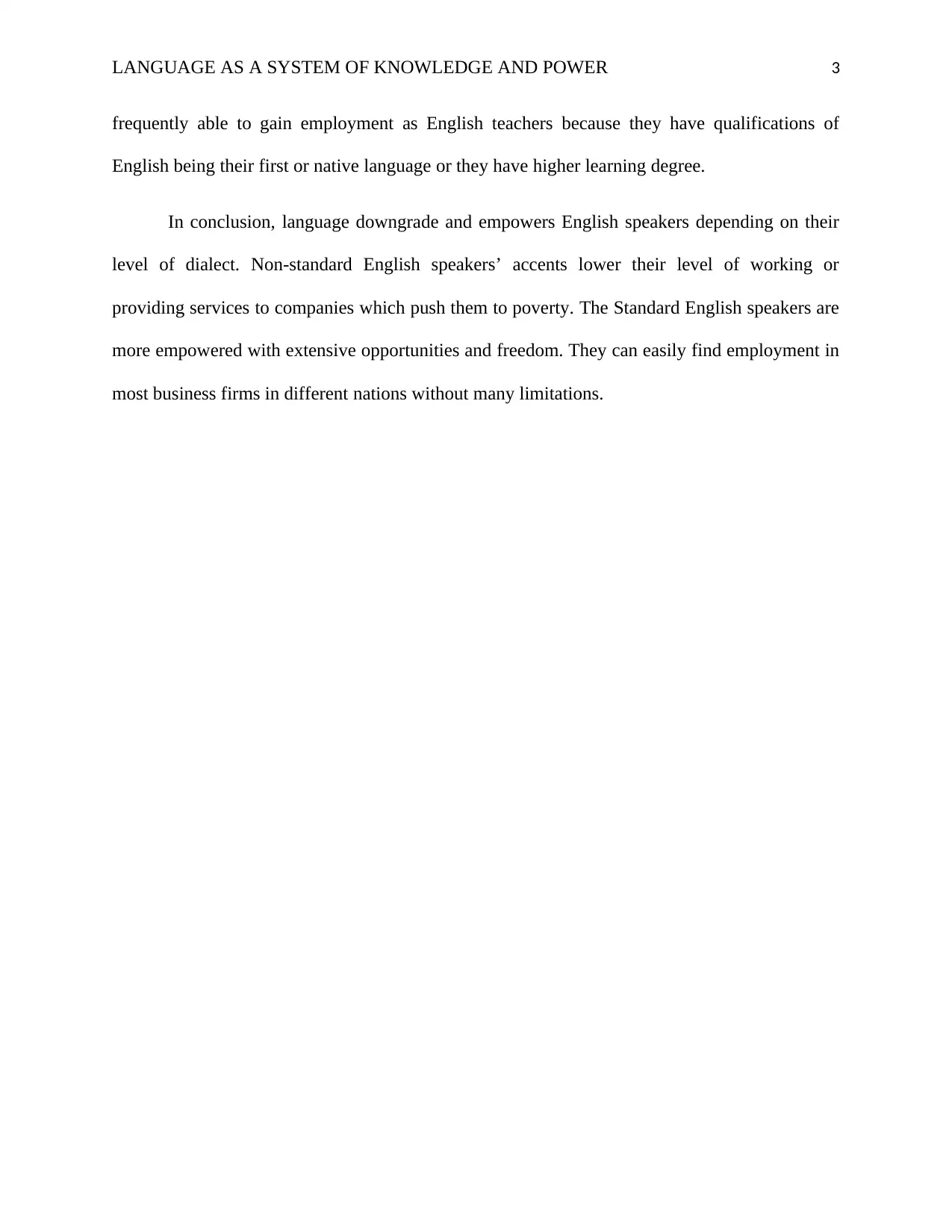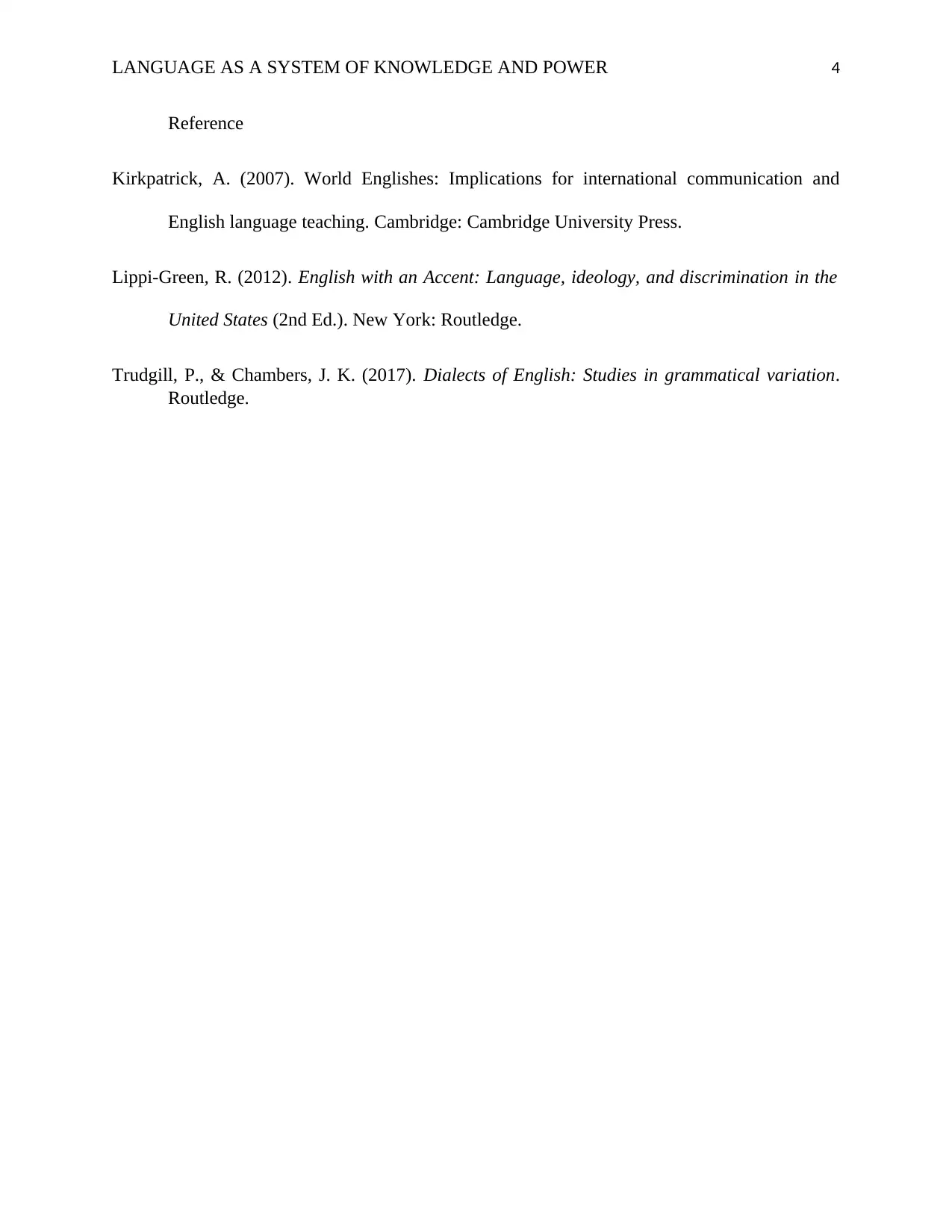Language as a System of Knowledge and Power: Standard and Non-Standard
VerifiedAdded on 2023/06/11
|4
|550
|492
Essay
AI Summary
This essay examines the influence of language, specifically English, as a system of knowledge and power, focusing on the differences between standard and non-standard dialects. It argues that standard English speakers often benefit from increased opportunities and freedom, while non-standard English speakers face marginalization in socioeconomic areas, including education, employment, and travel. The essay highlights how accent and dialect can affect perceptions of competence and limit access to resources, leading to disparities in wages and overall quality of life. Ultimately, the essay concludes that language can either empower or downgrade individuals based on their dialect, with standard English speakers enjoying greater advantages in various aspects of life.
1 out of 4





![[object Object]](/_next/static/media/star-bottom.7253800d.svg)